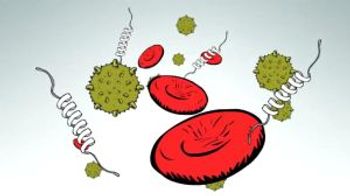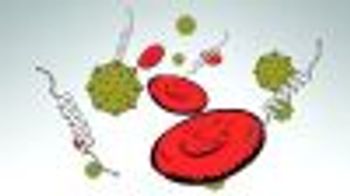
The Joint Commission's proposed standard on antimicrobial stewardship means higher demand for infectious diseases pharmacists and physicians, but will there be enough specialists to satisfy it?

The Joint Commission's proposed standard on antimicrobial stewardship means higher demand for infectious diseases pharmacists and physicians, but will there be enough specialists to satisfy it?

Skipping a flu shot may put patients at greater risk for flu-related pneumonia.

The Advisory Committee on Immunization Practices recently updated the recommended interval between the 13-valeant pneumococcal conjugate vaccine and the 23-valeant pneumococcal polysaccharide vaccine in low-risk elderly patients.

More evidence is needed to figure out how to dose vancomycin in obese patients, but a new protocol could play a role.

Elias Cachine, PharmD, BCPS (AQ-10) explains what steps pharmacists should take when treating infections in geriatric patients.

Research may improve the diagnosis of infectious and autoimmune diseases, including rheumatoid arthritis and HIV.

Allergan's ceftaroline fosamil is now approved for the treatment of acute bacterial skin and skin structure infections (ABSSSI) and community-acquired bacterial pneumonia with a shorter infusion time.

Data tracking may someday become a key component in limiting disease spread.

The FDA has fast-tracked Cempra's solithromycin to treat community acquired bacterial pneumonia.

Infectious diseases pharmacotherapy is a challenging subject.

The dispensing model for pyrimethamine has changed, which may cause delays in therapy.

Here are new drugs for 2015 that pharmacists can expect to handle.

Pharmacists can play an important role in counseling patients on the common symptoms of MERS.

Here are new drugs for 2015 pharmacists can expect to handle.

The FDA has cleared Roche's cobas Strep A test for use by health care professionals in non-traditional settings, including pharmacies and physician offices.

What should these pharmacists do?

Hospitals can now order Actavis's ceftazidime-avibactam (Avycaz) to treat serious infections in adults.

Record number of orphan drugs approved in 2014.

Gilead Sciences is seeking FDA approval for emtricitabine/tenofovir alafenamide.

Patients who suffer from chronic conditions are at a higher risk for medical-related episodes and errors.

The FDA has granted 2 breakthrough therapy designations to grazoprevir/elbasvir.

Readmission rates among patients with heart failure, acute myocardial infarction, and pneumonia increase when psychiatric illness is also present.

A recipe described in a 1000-year-old book may possess some antimicrobial activity.

Advances in treatment for chronic hepatitis C virus have been breaking news in the last few years.

Changes to immunization schedules, a review of this season's flu shot, and potential vaccines in the pipeline were broached at the American Pharmacist Association's Annual Meeting and Exposition session on immunizations.